Nutrition During Pregnancy and Breastfeeding: Supporting Mother and Baby
Hey there, my curious and caring friends of 2024! It’s your friendly nutrition guide, Nita Sharda, here to take you on a special journey into the world of nutrition during pregnancy and breastfeeding – the magical time when a mother’s body is working hard to grow and nourish a brand new little person!
Now, I know that pregnancy and breastfeeding might seem like things that only grown-ups need to think about, but the truth is, it’s never too early to start learning about how to take care of ourselves and our future families. And who knows – maybe someday, you’ll be the one sharing this important information with your own little ones!
So, are you ready to become a pregnancy and breastfeeding nutrition superhero? Let’s dive in and learn all about how to support both mother and baby through the power of healthy eating!
Why is Nutrition Important During Pregnancy and Breastfeeding?
First things first, let’s talk about why nutrition is so important during pregnancy and breastfeeding. When a woman is pregnant, her body is working hard to grow a tiny human from scratch – building bones, organs, muscles, and a brand new brain, all while keeping the mother healthy and strong too. That’s a big job, and it requires a lot of energy and nutrients to do it right!
During pregnancy, the baby gets all of its nutrition from the mother, through the placenta and umbilical cord. This means that everything the mother eats and drinks gets passed on to the baby, for better or for worse. If the mother eats a healthy, balanced diet full of vitamins, minerals, and other important nutrients, the baby will get everything it needs to grow and develop properly. But if the mother’s diet is lacking in certain nutrients, or if she consumes harmful substances like alcohol or tobacco, it can have negative effects on the baby’s health and development.
The same is true for breastfeeding. After the baby is born, breast milk becomes its primary source of nutrition for the first six months of life (and often longer). Breast milk is like a magical elixir that contains everything the baby needs to grow and thrive – the perfect balance of protein, fat, carbohydrates, vitamins, minerals, and immune-boosting compounds. But just like during pregnancy, the quality of the breast milk depends on the quality of the mother’s diet. The more nutritious and balanced the mother’s meals and snacks are, the better the breast milk will be for the baby.
So, as you can see, nutrition during pregnancy and breastfeeding isn’t just important for the mother’s health – it’s absolutely essential for the baby’s health and development too. That’s why it’s so important for pregnant and breastfeeding women to pay extra attention to what they’re putting into their bodies, and to make sure they’re getting all the nutrients they need to support both themselves and their growing babies.
Key Nutrients for Pregnancy and Breastfeeding
Okay, so now that we know why nutrition is so important during pregnancy and breastfeeding, let’s talk about some of the specific nutrients that mothers and babies need the most. Here are some of the key players:
1. Protein
Protein is like the building blocks of the body – it’s essential for growing and repairing tissues, making hormones and enzymes, and supporting a healthy immune system. During pregnancy, the mother needs extra protein to support the growth and development of the baby, as well as her own increased blood supply and expanding uterus. Good sources of protein include lean meats, fish, eggs, dairy products, beans, lentils, nuts, and seeds.
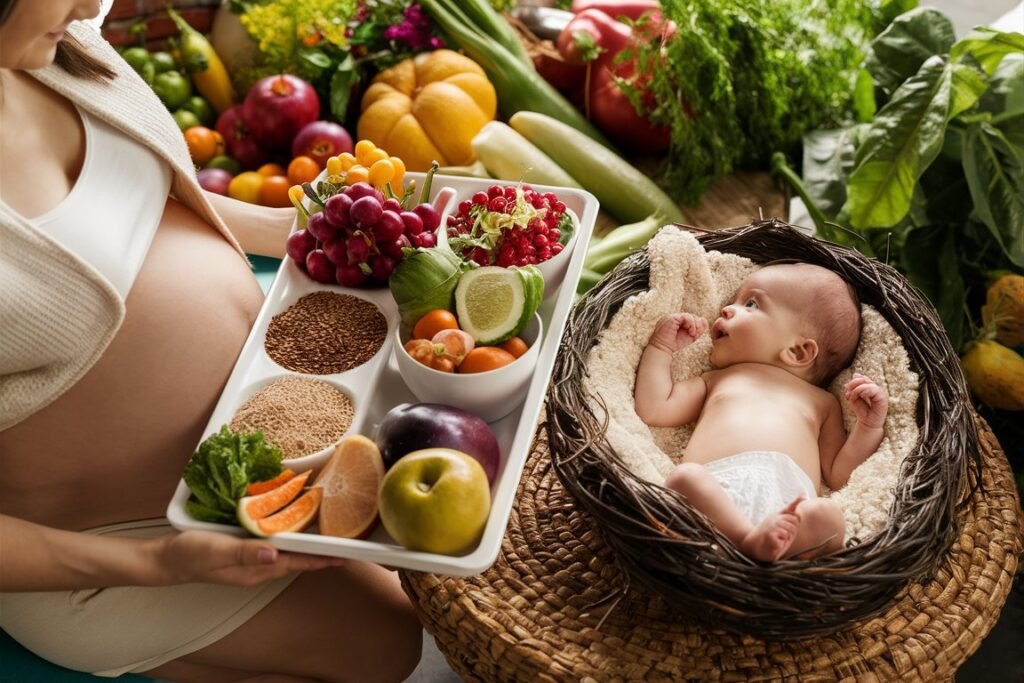
2. Iron
Iron is a mineral that helps the body make hemoglobin, a protein in red blood cells that carries oxygen to all the tissues and organs. During pregnancy, the mother’s blood volume increases by about 50%, which means she needs a lot more iron to make all those extra red blood cells. Low iron levels can lead to anemia, which can cause fatigue, weakness, and other symptoms. Good sources of iron include red meat, poultry, fish, beans, lentils, tofu, and fortified cereals.
3. Folate (Folic Acid)
Folate is a B vitamin that’s essential for making DNA and RNA, the genetic blueprints of every cell in the body. It’s especially important during the first few weeks of pregnancy, when the baby’s neural tube (which becomes the brain and spinal cord) is developing. Getting enough folate can help prevent serious birth defects like spina bifida and anencephaly. Good sources of folate include leafy green vegetables, citrus fruits, beans, lentils, and fortified cereals. Many prenatal vitamins also contain folic acid, the synthetic form of folate.
4. Calcium
Calcium is a mineral that’s essential for building strong bones and teeth, as well as supporting healthy muscle and nerve function. During pregnancy and breastfeeding, the mother’s body prioritizes the baby’s calcium needs over her own, which means she needs to consume extra calcium to avoid losing bone density herself. Good sources of calcium include dairy products, leafy green vegetables, tofu, and calcium-fortified foods like orange juice and plant-based milks.
5. Vitamin D
Vitamin D is another important nutrient for building strong bones and teeth, as well as supporting a healthy immune system. Our bodies can make vitamin D when our skin is exposed to sunlight, but many people don’t get enough sun exposure to meet their needs (especially in colder climates or during the winter months). Good dietary sources of vitamin D include fatty fish like salmon and tuna, egg yolks, and fortified foods like milk and cereal.
6. Omega-3 Fatty Acids
Omega-3 fatty acids are a type of healthy fat that’s important for brain and eye development, as well as reducing inflammation throughout the body. During pregnancy and breastfeeding, omega-3s are especially important for the baby’s growing brain and nervous system. Good sources of omega-3s include fatty fish like salmon, sardines, and anchovies, as well as flaxseeds, chia seeds, and walnuts.
These are just a few of the many important nutrients that pregnant and breastfeeding women need to support their own health and the health of their growing babies. Of course, every mother and baby is unique, and some may have additional nutrient needs based on their individual health status and circumstances. That’s why it’s so important for pregnant and breastfeeding women to work closely with their healthcare providers to develop a personalized nutrition plan that meets their specific needs.
Tips for Healthy Eating During Pregnancy and Breastfeeding
So, now that we know some of the key nutrients that pregnant and breastfeeding women need, let’s talk about some practical tips for making sure they’re getting enough of them. Here are some simple strategies for eating well during this special time:
1. Eat a Rainbow of Fruits and Veggies
One of the easiest ways to make sure you’re getting a wide variety of vitamins, minerals, and other important nutrients is to eat a rainbow of colorful fruits and vegetables every day. Aim to include at least one serving from each color group – red, orange, yellow, green, blue/purple, and white/brown – to get the most diverse range of nutrients. Some great options include berries, citrus fruits, leafy greens, sweet potatoes, bell peppers, and cruciferous veggies like broccoli and cauliflower.
2. Choose Whole Grains Over Refined Grains
Whole grains like oats, quinoa, brown rice, and whole wheat bread are a great source of fiber, B vitamins, and other important nutrients. They also tend to be more filling and satisfying than refined grains like white bread and pasta, which can help with managing hunger and cravings during pregnancy. Try to choose whole grain options whenever possible, and aim for at least half of your grain servings to come from whole grain sources.
3. Include Lean Protein at Every Meal
Protein is important for building and repairing tissues, and it’s especially crucial during pregnancy and breastfeeding. Aim to include a source of lean protein at every meal and snack, such as grilled chicken, fish, tofu, beans, lentils, eggs, or low-fat dairy products. If you’re vegetarian or vegan, make sure you’re getting enough plant-based protein sources like legumes, nuts, and seeds to meet your needs.
4. Don’t Fear Healthy Fats
Healthy fats like those found in avocados, nuts, seeds, olive oil, and fatty fish are important for brain development, hormone production, and overall health. Don’t be afraid to include moderate amounts of these healthy fats in your diet, especially sources of omega-3 fatty acids like salmon, sardines, and flaxseeds. Just be mindful of portion sizes, as fats are more calorie-dense than other nutrients.
5. Stay Hydrated with Water and Other Healthy Fluids
Staying hydrated.




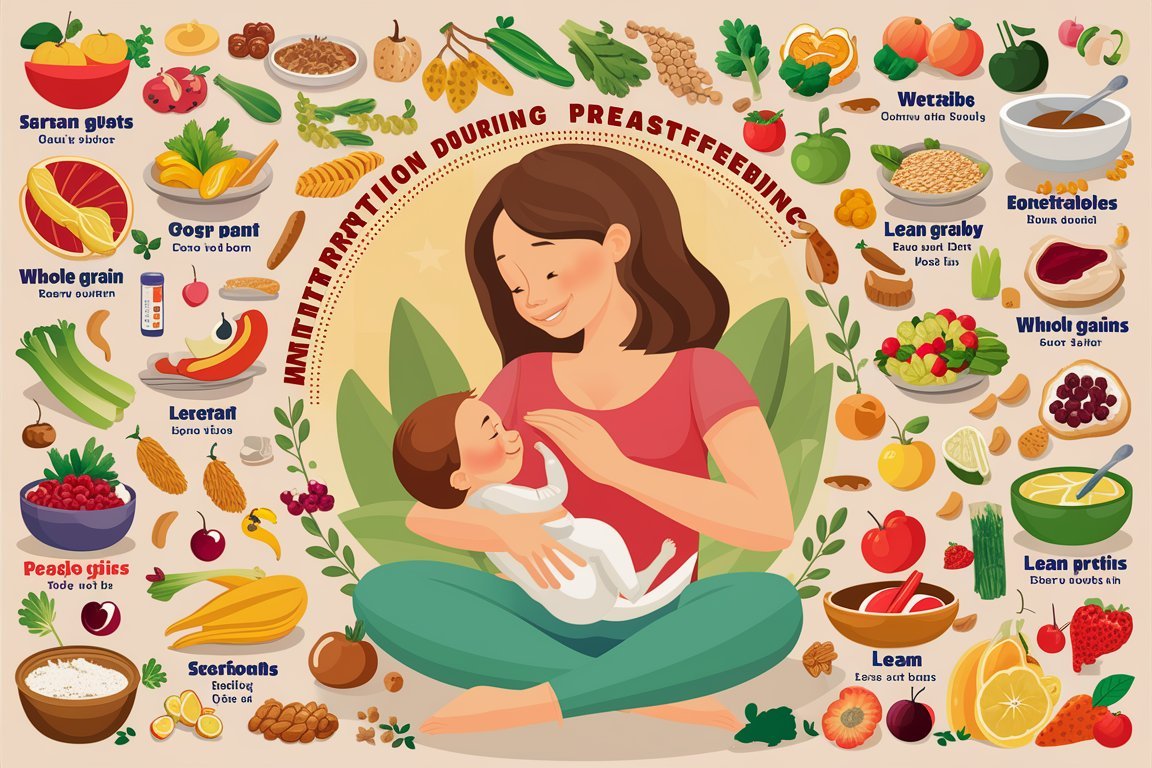




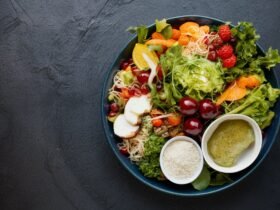
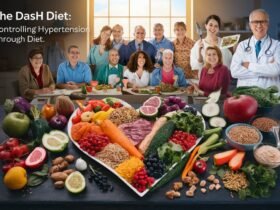
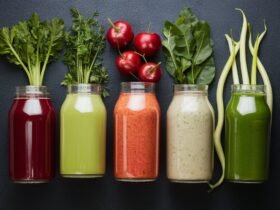
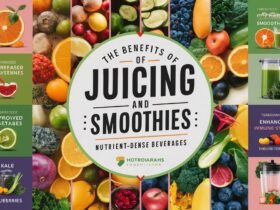
Leave a Reply